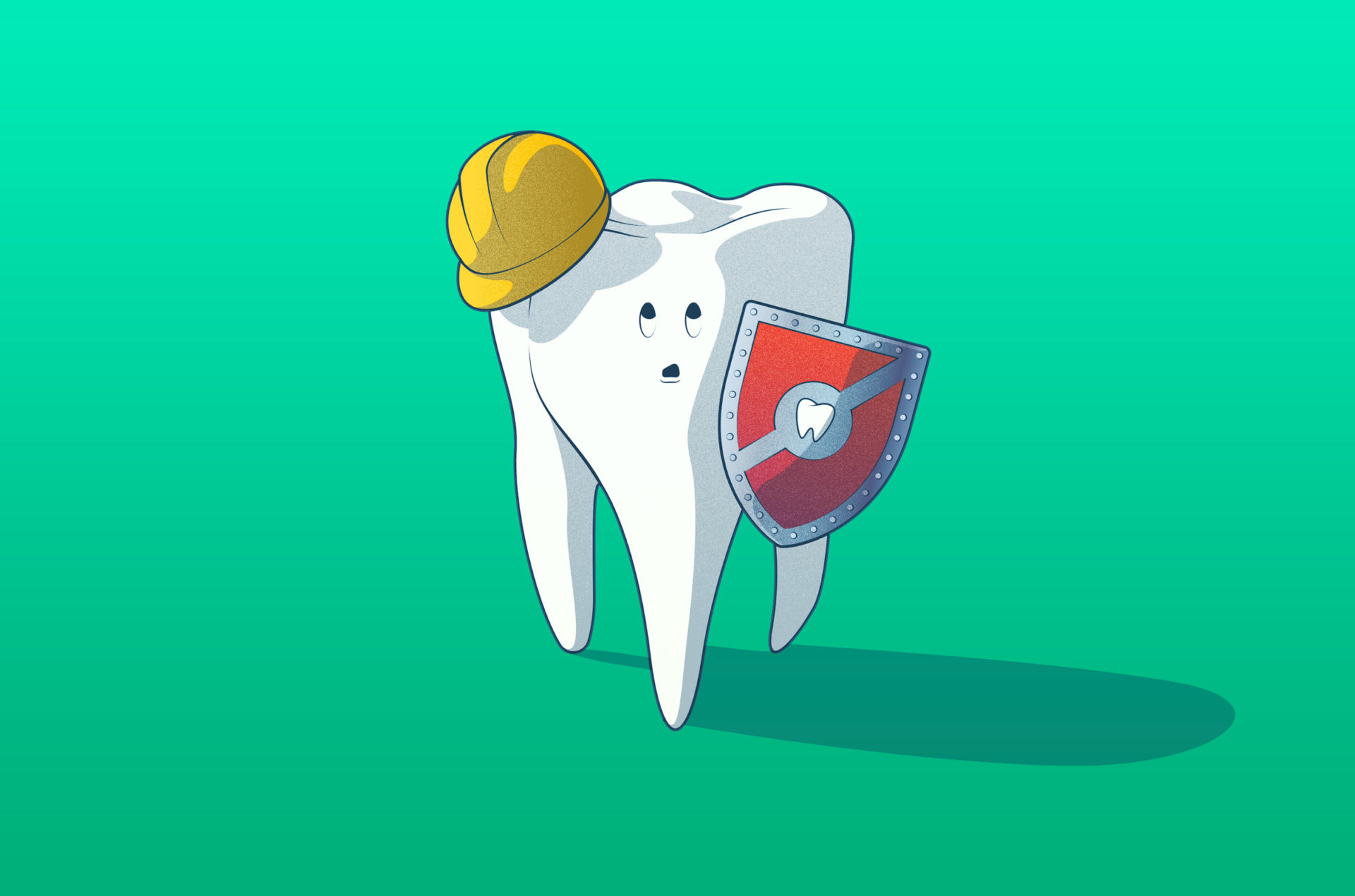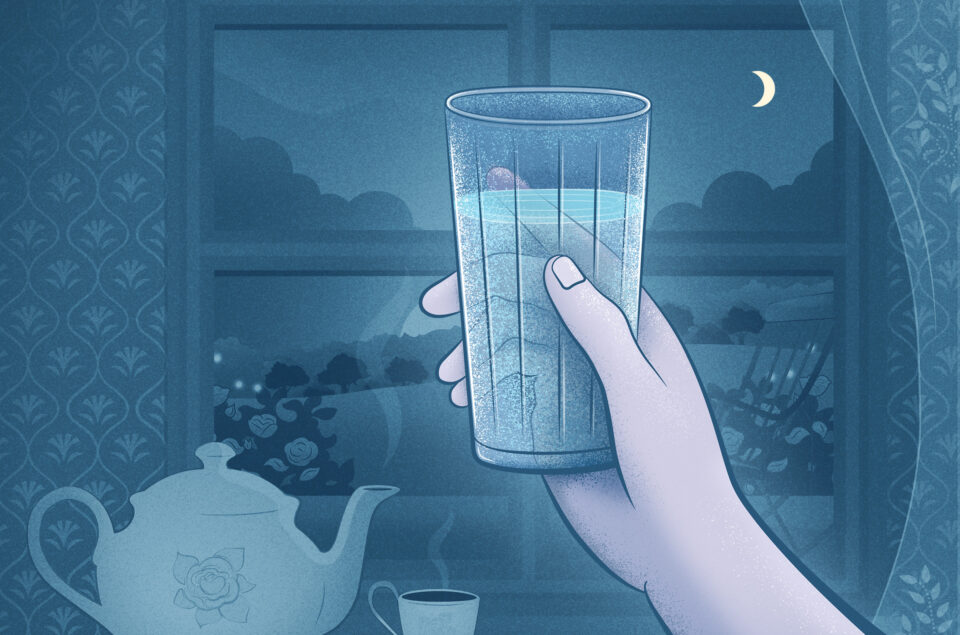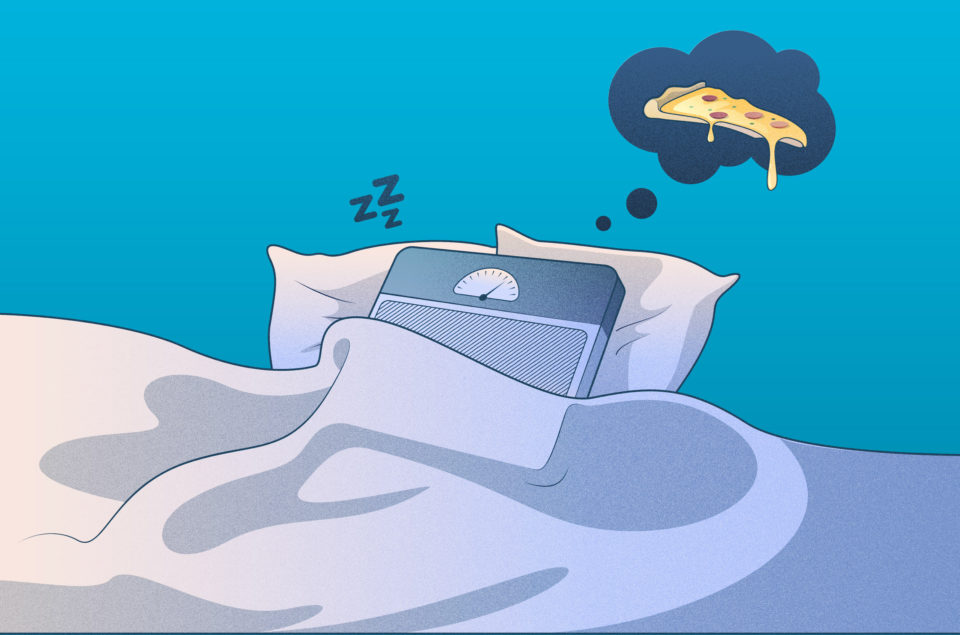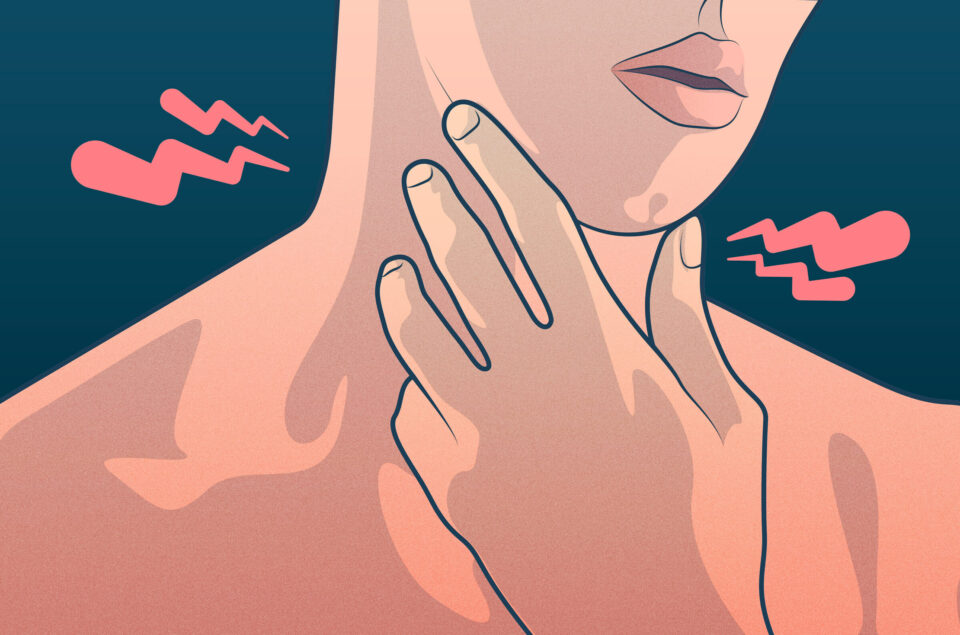Affecting approximately one in ten adults, teeth grinding or bruxism, a relatively little-discussed condition, is not one to be ignored, despite the fact that many people don’t even know they have it.
In this article, we’ll cover:
- What is night-time teeth grinding or sleep bruxism? Prevalence, causes and effects.
- 10 natural remedies to stop grinding your teeth in your sleep.
- Which night-time teeth grinding remedy is right for me?
What is night-time teeth grinding or sleep bruxism?
A common involuntary response to stress, fear or anger, teeth grinding can take place while either awake or asleep but tends to be a lot less heard about when sleeping. This is largely because many people are unaware they’re even doing it.
However, failing to pick up on bruxism can have severe implications. Because people don’t realize the strength of their bite when they sleep, the amount of force applied when tightly clenching the mouth together can create serious issues for both the teeth and jaw. In fact, studies have shown that up to 250 pounds of force can be employed during episodes of sleep bruxism – or night-time teeth grinding – yet many people often don’t realize the effects of their actions until it’s too late.
How common is night-time teeth grinding?
Since many people don’t realize they grind their teeth while they’re asleep, statistics on sleep bruxism are often difficult to pin down. But that hasn’t stopped us. Studies estimate that the issue is most common during childhood, with anywhere from around 6% to almost 50% of children experiencing some degree of night-time teeth grinding.
This is largely thought to be due to the process of teeth coming in as an infant, with the overall process taking between 17 and 25 years for an entire set of adult teeth to come through from birth.
What causes it?
While there doesn’t tend to be one specific cause of night-time teeth grinding, the condition is often associated with feelings of stress and anxiety. This is hypothesized to be because, when we get stressed, we build up a huge amount of tension in our body throughout the course of the day, and people with sleep bruxism tend to often release this tension by grinding their teeth when they’re asleep.
Teeth grinding can also be brought on by a wide range of sleep problems and existing disorders. For instance, various studies have linked conditions like obstructive sleep apnea, sleep paralysis, Parkinson’s disease, epilepsy, and ADHD with sleep bruxism in recent years. Certain drugs are often associated with teeth grinding as well. This includes legal drugs, like antidepressants, alcohol, nicotine and caffeine, as well as illegal drugs, such as ecstasy and cocaine.
What are the effects of teeth grinding?
Left unaddressed over a long period of time, teeth grinding can cause significant harm to the teeth, making them feel incredibly painful or even eroding them over time. Plus, for people who have fillings, dental crowns or any implants, these can also become damaged over time, creating what could be a costly – and fairly painful – issue to fix.
One of the most well-known consequences of teeth grinding sometimes doesn’t even affect the individuals themselves. Similar to the sound of nails down a chalkboard or a baby crying, the motion of grinding teeth makes one of those noises that goes through a lot of people – and that includes partners.
10 Natural remedies that help stop grinding your teeth at night
The first step to treating sleep bruxism is realizing you actually have it – but this can be a lot easier said than done. So, if you’re unsure, asking your partner to monitor you while you sleep, using a Sleep tracker or visiting a dentist/doctor to get a firm diagnosis, could be a great place to start.
Then, once you know you have sleep bruxism for definite, trying some of the home remedies listed below could help treat the issue, discouraging you from grinding your teeth in your sleep as naturally as possible, before it becomes a bigger problem:
- Watch what you eat. What you eat as part of your diet can make a big difference when coping with sleep bruxism. Hard foods like nuts, popcorn and many candies should be avoided at all costs, while extra caution should also be taken with any sticky foods that are difficult to chew, such as peanut butter. However, magnesium-rich foods, like leafy green vegetables, yogurts and brown rice, should be favored, due to their ability to ease inflammation when sleeping.
- Drink warm milk. Drinking warm milk with turmeric can help a lot when trying to naturally overcome the sleeping issues associated with night-time teeth grinding. This is largely because of the effect of tryptophan, a milk-based amino acid that relaxes the nerves, combined with the power of turmeric, a spice renowned for its ability to reduce inflammation and pain in the body.
- Avoid alcohol and caffeine. As mentioned previously, any caffeine or alcohol-containing drinks should be avoided when trying to overcome sleep bruxism. This is because of these substances’ effect on breaking up sleeping patterns, triggering jaw muscles to become hyperactivated, and teeth to grind.
- Embrace essential oils and aromatherapy. Essential oils can be your best friend when trying to relieve stress – the most common cause of sleep bruxism. Herbs like lavender, cedarwood, bergamot and chamomile have all been shown to have particularly calming effects on the brain, and are widely used in a range of aromatherapy-based techniques. So, picking up an oil diffuser to naturally treat your night-time teeth grinding could be a sound investment.
- Massage your jaw with lavender oil. Massaging a few drops of lavender oil into the underside of your jaw before bed can help relieve any tension you might have unknowingly built up in your mouth throughout the day. Plus, the repetitive circular motion will encourage your mouth to unclench, allowing you to head off to sleep in a more naturally relaxed state of mind.
- Practice meditation. Numerous studies have demonstrated the effect of mindfulness on mental health over the years, with techniques like meditation and breathing exercises proving particularly useful in relieving feelings of stress and anxiety. Meditating to relaxing sounds – such as ocean waves, raindrops or classic white noise – has also been shown to calm the autonomic nervous system, helping slow breathing, lower the heart rate and improve sleeping efficiency.
- Get into yoga. While most types of exercise will help ease sleep bruxism in some way, yoga has been found to be especially good at reducing the symptoms of inflammation associated with the condition. Practicing poses that focus on stretching the neck, jaw and mouth area, such as the ‘eyes around the clock’, ‘camel’ or ‘bridge’ pose, for example, could help ease pressure in your face and discourage night-time teeth grinding in a more natural way.
- Try herbal tea. Since night-time teeth grinding is aggravated by feelings of nervousness and tension, drinking non-caffeinated herbal tea – such as green or chamomile tea – can be a great way to relax your mind and body, relieving the pent-up feelings of stress typically associated with the condition.
- Use a hot compress. Regularly using a hot towel, compress or heating pad has been shown to relax the muscles around the teeth, jaw, mouth and neck. This, in turn, helps increase the blood supply to these specific areas, improving circulation and – ultimately – reducing the potentially damaging effects of teeth grinding whilst asleep.
- Invest in a bite guard. While the thought of wearing a bite guard may conjure up the image of a rugby player, these protective mouth devices are designed to significantly reduce the dental damage caused by teeth grinding. This comes through their ability to form a barrier between the top and bottom sets of teeth, helping cushion the effect of clenching teeth together when sleeping.
Which natural night-time teeth grinding remedy is right for me?
Identifying the best natural remedy to treat your teeth grinding will often involve a bit of trial and error. Therefore, it’s generally a good idea to try each type of treatment in isolation, setting up a sleep diary to track its impact, and then working out which remedies are making the biggest difference to your life and sleeping pattern.
Listen out for sleep bruxism on Sleep Cycle
Thanks to our patented sound analysis technology, Sleep Cycle can also listen to the sounds you make during the night and provide a detailed analysis of how you sleep.
While our team is still working on a way of pinpointing the sounds of teeth grinding specifically (watch this space!), our app will allow you to hear, identify and address any potential negative influencers on your sleep, helping you overcome any anxiety or diet-related teeth grinding symptoms you might be having – whether knowingly or unknowingly.










